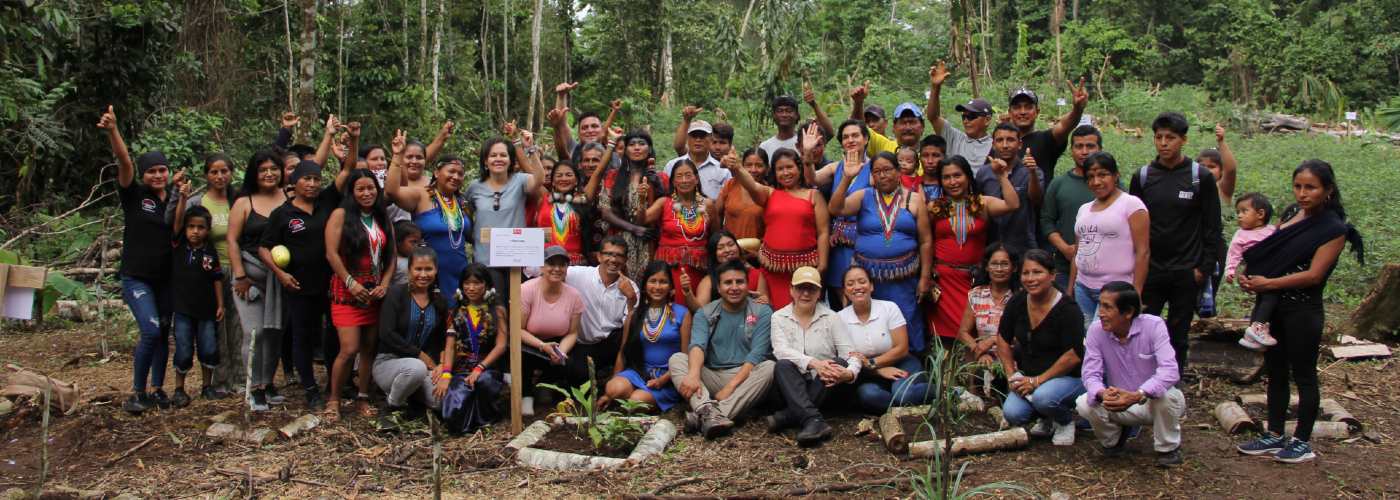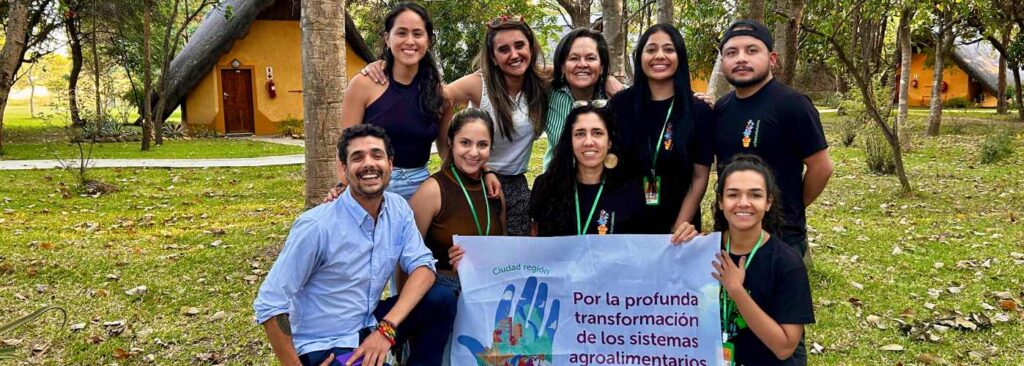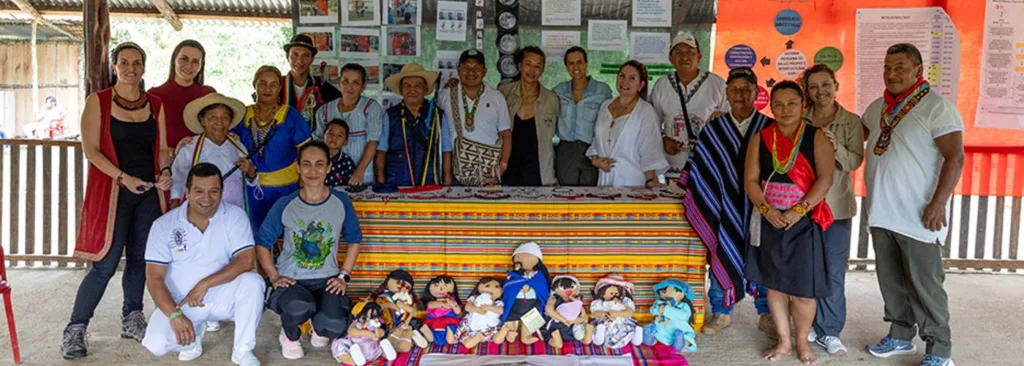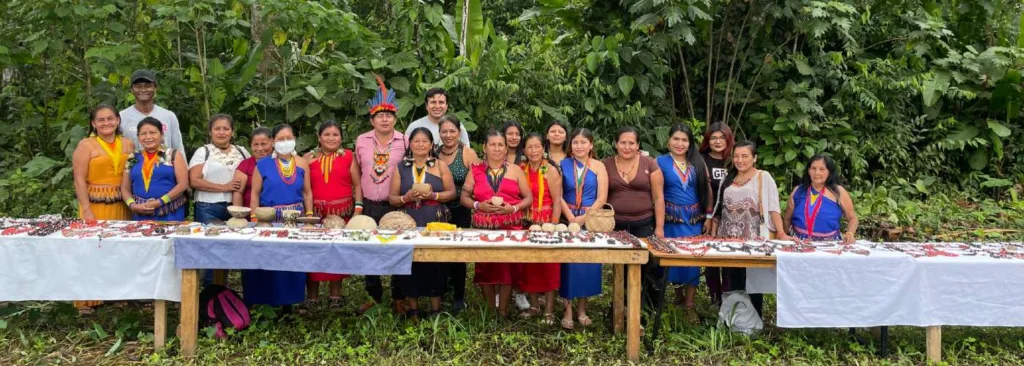The Amazonian Indigenous Health and Climate Change Route (Ruta de la Salud Indígena Amazónica y Cambio Climático) is a unique initiative working to restore the delicate balance between nature, health, and spirituality that defines well-being in Amazonian Indigenous communities. As climate change disrupts this harmony, communities across Ecuador, Brazil, and Colombia are working with Hivos to preserve ancestral knowledge while promoting health and climate resilience.
Patricia Granja, a senior health expert working on the project, told us that “climate change alters this delicate interaction, directly impacting health in its most holistic concept. Through this project, we work to preserve this balance!” The Amazon Route team met with some of the Indigenous communities in Ecuador to document their practices and experiences.
Cross-cultural exchange of knowledge
During the trip, they visited different Indigenous groups such as the Santa Cecilia Villano, Los Vegas, and Yamanunka communities, who gathered to exchange experiences. To see the project in action, watch this series of short videos where the Indigenous communities of Ecuador share their stories and solutions.
Health, climate, and ancestral wisdom
During these exchanges, the focus was on practical learning. Participants visited “smart gardens”, witnessing firsthand how Indigenous knowledge, combined with modern agroecological practices, is applied to create climate-resilient crops. These gardens not only provide food security but also serve as a communal space where members work together, reinforcing social ties and cultural identity.
Their solutions center around returning to traditional practices: using medicinal plants, growing climate-smart gardens, and engaging in communal work known as mingas comunitarias. These gardens, described as “intercultural, climate-intelligent orchards with a focus on health,” (huertos climaticamente inteligentes interculturales con enfoque en salud) are designed to serve as a tangible demonstration of how traditional knowledge can adapt to modern climate challenges.
Nua kankaram: brave women
The Nua Kankaram organization, from the Shuar Indigenous group, has been working on restoration and climate-smart gardens in order to preserve the species that their ancestors used to cultivate. These species also contribute to their food needs and medicinal garden.
The Amazonian Indigenous Health and Climate Change Route serves as a blueprint for how Indigenous knowledge, climate resilience, and health can be interwoven to address the challenges posed by climate change. By fostering collaboration between local communities and national governments, and promoting sustainable, community-based solutions, this initiative shows how we can build pathways toward a healthier, more resilient future for both the people and the planet.
The Amazonian Indigenous Health and Climate Change Route
The Amazonian Indigenous Health and Climate Change Route program presents a groundbreaking opportunity to amplify the voices of Indigenous Peoples and harness their ancestral knowledge to reduce the negative impacts of climate change on health. Our focus is on addressing health issues by understanding and mitigating factors that impact the wellbeing of the population. Listening to the voices of Amazonian people involved in the project, we see that climate change is a global issue not caused by Indigenous communities, but rather by wealthy countries from the Global North. This program runs with partner organizations: the Amazon Conservation Team and Centro Trabalho Indigenista, and is funded by the Rockefeller Foundation.








